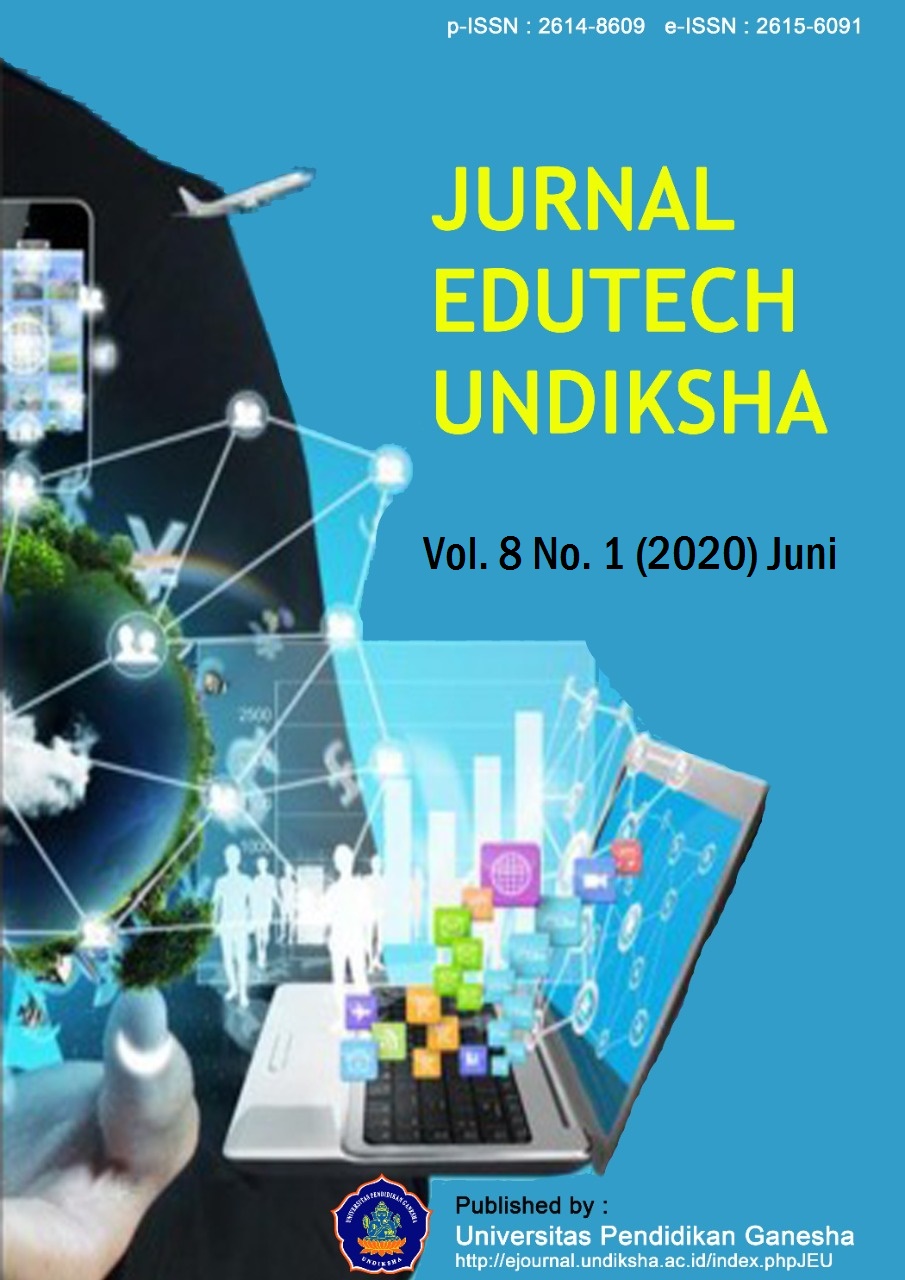Efektivitas Hasil Belajar IPA Melalui Model Discovery Learning Berbantuan Media Visual Siswa Kelas IV SD
DOI:
https://doi.org/10.23887/jeu.v8i1.25194Abstract
Rendahnya hasil belajar siswa pada mata pelajaran IPA serta kecenderungan siswa menghafal materi mengakibatkan siswa jarang menemukan sendiri konsep atau prinsip materi yang dibelajarkan. Penelitian ini bertujuan untuk mengetahui pengaruh yang signifikan model pembelajaran discovery learning berbantuan media visual terhadap hasil belajar IPA siswa kelas IV SD. Populasi penelitian ini berjumlah 179 orang siswa di kelas IV SD. Jenis penelitian ini adalah eksperimen semu dengan desain non-equivalent post-test only control group design. Metode pengumpulan data yang digunakan adalah metode tes berupa pilihan ganda. Metode analisis data yang digunakan yaitu uji-t. Hasil penelitian menunjukan bahwa thitung= 3,95 > ttabel = 2,000 dengan kriteria pengujian thitung (3,95) > ttabel (2,000), sehingga H0 ditolak dan H1 diterima. Dengan demikian, model discovery learning berbantuan media visual berpengaruh terhadap hasil belajar IPA siswa kelas IV SD. Dengan hal ini membuktikan bahwa model discovery leaning berbantuan media visual berpengaruh posistif terhadap peningkatan hasil belajar IPA siswa kelas IV SD.
Downloads
Published
How to Cite
Issue
Section
License
Authors who publish with the Jurnal EDUTECH Undiksha agree to the following terms:
- Authors retain copyright and grant the journal the right of first publication with the work simultaneously licensed under a Creative Commons Attribution License (CC BY-SA 4.0) that allows others to share the work with an acknowledgment of the work's authorship and initial publication in this journal.
- Authors are able to enter into separate, additional contractual arrangements for the non-exclusive distribution of the journal's published version of the work (e.g., post it to an institutional repository or publish it in a book), with an acknowledgment of its initial publication in this journal.
- Authors are permitted and encouraged to post their work online (e.g., in institutional repositories or on their website) prior to and during the submission process, as it can lead to productive exchanges, as well as earlier and greater citation of published work. (See The Effect of Open Access)









